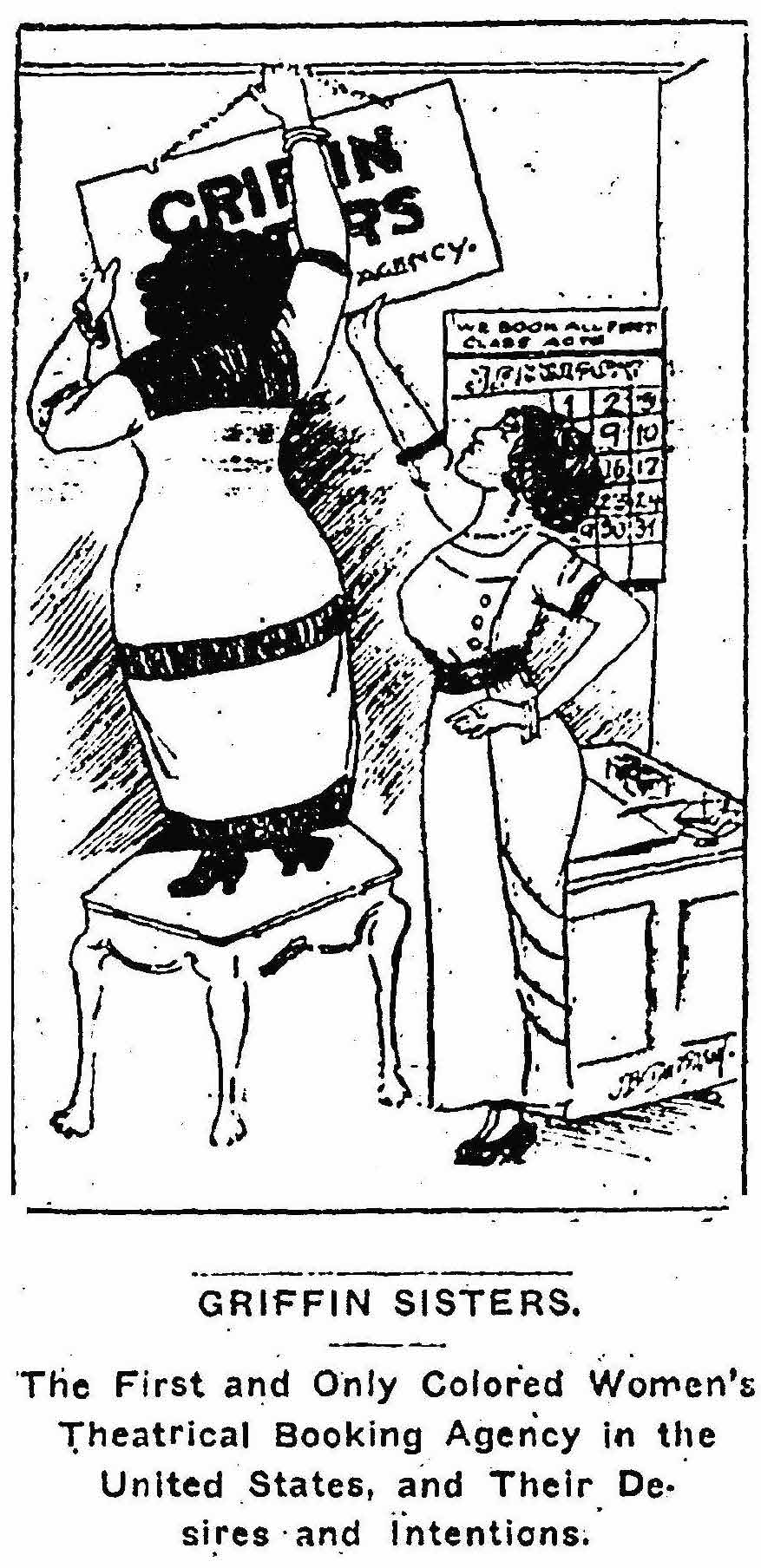“Theatrical Brokering and Management as Community Activism: The Griffin Sisters”
Book Chapter, Women's Innovations in Theater, Dance, Performance (Bloomsbury)

Theatre scholars rarely examine the role of theatre agents or managers and are even less likely to recognize them as community leaders or activists. This chapter takes a feminist, race-conscious historiographical approach to argue that theatrical booking and management constitute both leadership and activism, highlighting its socio-political significance in the African American community. It focuses on the pioneering work of Emma and Mabel Griffin, the first African American female booking agents and theatre impresarios in the United States. At the peak of their performing careers, the Griffin Sisters shifted their focus away from stage fame and invested their earnings as touring comedians into opening a booking agency. They did so without external financial supporta and despite the fact that the vaudeville industry was largely dominated by a few white male managers. Over time, they leased several theatres in Black neighborhoods in Chicago and Washington, DC, establishing the first Black-owned entertainment circuit, which was entirely supported by Black theatre workers. By providing fair employment opportunities and stability for Black artists—something that white vaudeville managers had failed to offer—the Griffin Sisters turned their agency and theatre circuit into a source of racial pride and a model of self-reliance. Their work redefined theatre booking and management as a leadership opportunity for Black women and a service to the broader Black community.